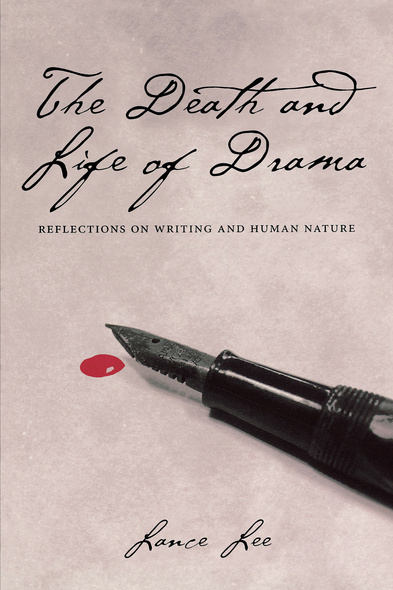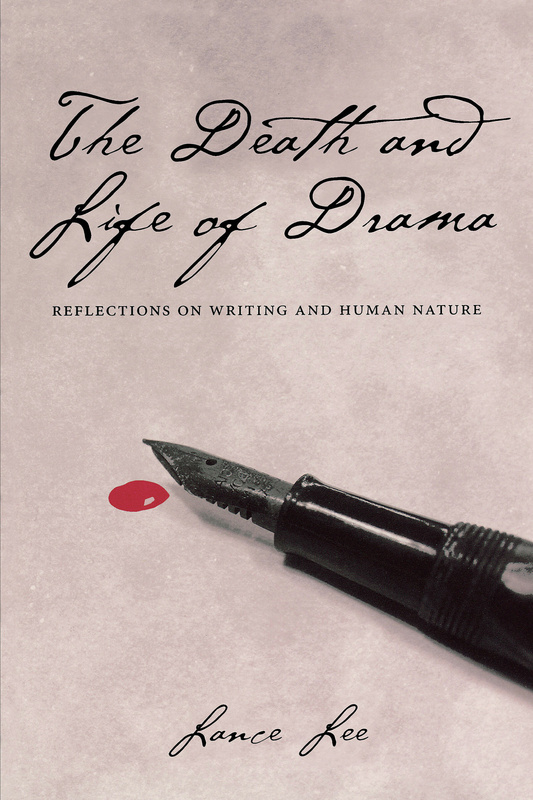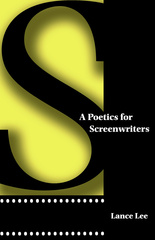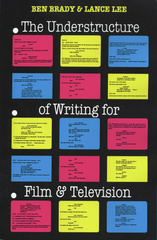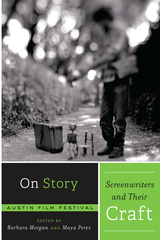The Death and Life of Drama
Reflections on Writing and Human Nature
What makes a film "work," so that audiences come away from the viewing experience refreshed and even transformed in the way they understand themselves and the world around them? In The Death and Life of Drama, veteran screenwriter and screenwriting teacher Lance Lee tackles this question in a series of personal essays that thoroughly analyze drama's role in our society, as well as the elements that structure all drama, from the plays of ancient Athens to today's most popular movies.
Using examples from well-known classical era and recent films, Lee investigates how writers handle dramatic elements such as time, emotion, morality, and character growth to demonstrate why some films work while others do not. He seeks to define precisely what "action" is and how the writer and the viewer understand dramatic reality. He looks at various kinds of time in drama, explores dramatic context from Athens to the present, and examines the concept of comedy. Lee also proposes a novel "five act" structure for drama that takes account of the characters' past and future outside the "beginning, middle, and end" of the story. Deftly balancing philosophical issues and practical concerns, The Death and Life of Drama offers a rich understanding of the principles of successful dramatic writing for screenwriters and indeed everyone who enjoys movies and wants to know why some films have such enduring appeal for so many people.
This is an intelligent, practical, and interesting study of the screenwriting art and craft. . . . Lee's explorations into underlying philosophy and the psychological intricacies of character behavior and story consequences are so well developed they could easily be taken as case histories of real people and real events. One can scarcely have higher praise for [this] cogent analysis of the moviemaker's art.
Lee presents an intelligent, historically informed discussion of how and why some films are inherently better than others. . . . He gives audiences and those of us who teach film some important ideas about how to evaluate the quality and significance of one film as opposed to another. . . . The book is filled with tantalizing, thought-provoking, and insightful ideas.
Lance Lee has taught screenwriting to students at all levels for many years. He lives in Pacific Palisades, California.
- Preface
- Part I. Immediate Issues
- 1. By the Ocean of Time
- Time
- The Argument We Are Caught In
- Time and Drama
- Slow vs. Swift
- 2. The Heavy as Opposed to . . .
- The Heavy vs. the Exhilarating
- Freud, Civilization, and the Heavy
- The Descent into the Heavy
- 3. Moral Substance and Ambiguity
- Morality and Screenplays?
- Typing and Volition in . . .
- The Heavy and Moral . . .
- But What Are We Morally Ambiguous About?
- 4. Complexity vs. Fullness
- Belief vs. Disbelief: Complexity
- Fullness
- Typing, Volition, and Fullness
- Endings
- A Diagram
- 1. By the Ocean of Time
- Part II. The Cooked and the Raw
- 5. The Cooked and the Raw
- Cooked Emotion
- The Raw
- Blending the Cooked and the Raw
- Antecedents
- 6. The Smart and the Dumb
- Flat and Round
- Hamlet and the Dumb
- John Nash and the Smart
- Plot-Handling Implications
- 5. The Cooked and the Raw
- Part III. The Lost Poetics of Comedy
- 7. The Lost Poetics of Comedy
- The Comic Universe
- Winnicott and Play
- Some Diagrams
- The Two Roads
- The Bones of the Comic Angle of Vision
- The Cooked and Comedy
- The New Beginning in Comedy
- Another Diagram
- The Smart and Dumb in Comedy
- 7. The Lost Poetics of Comedy
- Part IV. The Nature of Dramatic Action
- 8. The Weight of the Past
- What Is the Past?
- High Noon
- Lantana
- Wild Strawberries
- Lifting Weights
- 9. The Weight of the Wrong Decision
- The Wrong Decision in the Past
- The Wrong Decision in the Present
- True Heroines and Heroes and False
- 10. The Nature of the Hero's Journey
- Campbell's Hero
- The Dramatic Hero
- 1. Arresting Life
- 2. Complying with the False
- 3. Awakening
- 4. Confused Growth—and the Pursuit of Error
- 5. Failure of the False Solution
- 6. The Discovery of the True Solution
- 7. The Heroic Deed
- 8. Suffering
- 9. The New Life
- 8. The Weight of the Past
- Part V. The Death and Life of Drama
- 11. The Death and Life of Drama
- Prometheus in Athens, Gladiator in Rome
- Shakespeare in Elizabeth's London
- The Argument We Are Having with Ourselves
- 11. The Death and Life of Drama
- Appendix
- A Case Study: Ingmar Bergman's Fanny and Alexander
- Notes
- Film and Drama List
- Index

